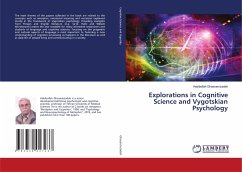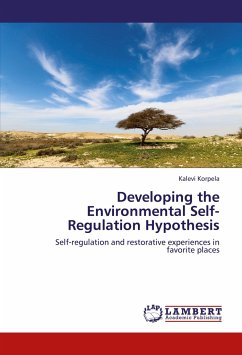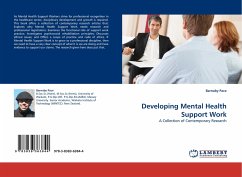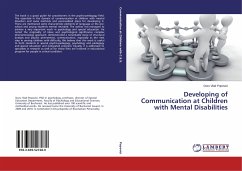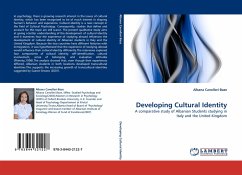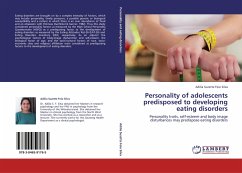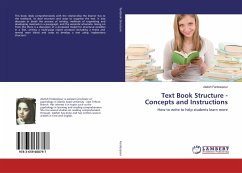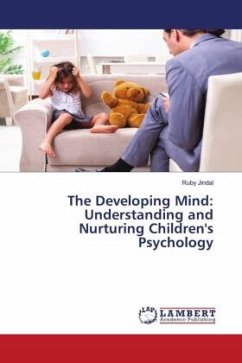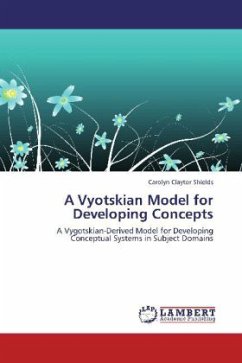
A Vygotskian Model for Developing Concepts
A Vygotskian-Derived Model for Developing Conceptual Systems in Subject Domains
Versandkostenfrei!
Versandfertig in 6-10 Tagen
39,99 €
inkl. MwSt.

PAYBACK Punkte
20 °P sammeln!
The study applied the principles of L. S. Vygotsky's cultural-historical theory to create and test an approach to concept learning different from currently-developed approaches. According to Vygotsky, formal instruction leads the development of students' higher mental functions. His perspective is unique because it relates concept learning to development of these higher mental functions. Twenty-four students (19 females and 5 males) in a graduate-level educational psychology class were randomly assigned to two treatment conditions: (1) Vygotskian-derived instruction and (2) traditional instruc...
The study applied the principles of L. S. Vygotsky's cultural-historical theory to create and test an approach to concept learning different from currently-developed approaches. According to Vygotsky, formal instruction leads the development of students' higher mental functions. His perspective is unique because it relates concept learning to development of these higher mental functions. Twenty-four students (19 females and 5 males) in a graduate-level educational psychology class were randomly assigned to two treatment conditions: (1) Vygotskian-derived instruction and (2) traditional instruction. Standardized test scores were used to block subjects according to verbal ability (high and low). All subjects received 3.5 hours of instruction on Bernard Weiner's attribution theory as a system of concepts. Concept learning was assessed prior to and following the instructional intervention. The three dependent measures included: (1) a multiple-choice test, (2) a scenario analysis, and(3) a short-answer questionnaire. The multiple-choice measure was included because conceptual knowledge is frequently assessed in this way.



